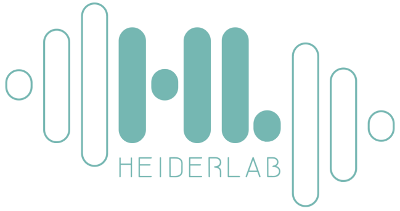CORona Drug InTEractions database
A Study of Potential SARS-CoV-2 Antiviral Drugs and Preliminary Research of Their Molecular Mechanism, Based on Anti-SARS-CoV Drug Screening and Molecular Dynamics Simulation
Xiaomeng Zhao, Ruixia Liu, Zhi Miao, Nan Ye, Wenyu Lu
Abstract
This research was based on virtual docking screening and molecular dynamics simulation among the 30 drugs analyzed, which drug had the best inhibitory effect on 3CL protease (Mpro) hydrolase. AutoDock Vina is used for molecular docking. Through our research, the binding affinity of saquinavir and raltegravir to the protein is higher than other candidate drugs in molecular docking; they are −9.1 kcal/mol and −9 kcal/mol, respectively. Among them remdesivir performance was mediocre, only −7.9 kcal/mol. In our study, ultimately, these systems are also basically stable. The overall contraction of the protein structure is most obvious after the combination of remdesivir. In the remdesivir-protein system, the structure of the terminal end has undergone relatively large changes. And the total number of hydrogen bonds formed in the remdesivir-protein system is larger. The hydrogen bonds can be maintained for a longer time, and the final interaction energy is stronger than other systems. These amino acid sequence fragments have high affinity with the remdesivir molecule. Remdesivir can change the structure of the protein to make it stronger in binding with itself through the interaction with the protein. The simulation study of drug screening for new coronaviruses can provide further support for new coronavirus effective drugs and provide powerful support to defeat the virus.
Source: PubMed
Related molecules
Related interactions
| Target | Target affiliation | Drug | Type | Result |
|---|---|---|---|---|
| Target | Target affiliation | Drug | Type | Result |
| Name | Synonyms | Genes | Origin |
|---|---|---|---|
| Name | Synonyms | Genes | Origin |
| Name | Synonyms | PubChem | DrugBank | RCSB PDB | ATC |
|---|---|---|---|---|---|
| Name | Synonyms | PubChem | DrugBank | RCSB PDB | ATC |
| Title | Authors | DOI | Source | Article type | Date |
|---|---|---|---|---|---|
| Title | Authors | DOI | Source | Article type | Date |
| Title | Status | Phases | Start Date | Prim. Comp. Date | Comp. Date | First Post. Date |
|---|---|---|---|---|---|---|
| Title | Status | Phases | Start Date | Prim. Comp. Date | Comp. Date | First Post. Date |
CORDITE (CORona Drug InTEractions database) collects and aggregates data from PubMed, MedRxiv, BioRxiv, ChemRxiv and PMC for SARS-CoV-2. Its main focus is set on drug interactions either addressing viral proteins or human proteins that could be used to treat COVID. It collects and provides up-to-date information on computational predictions, in vitro, as well as in vivo study data.
The information provided is for research only and we cannot guarantee the correctness of the data.
Please contact dominik.heider@uni-muenster.de for further information.
Programmable access
There is an open API for access programmatically to the database. The API will print a JSON output:
- Interactions
https://cordite-api.uni-muenster.de/api.php?action=list&table=interaction
- Targets
https://cordite-api.uni-muenster.de/api.php?action=list&table=target
- Drugs
https://cordite-api.uni-muenster.de/api.php?action=list&table=drug
- Publications
https://cordite-api.uni-muenster.de/api.php?action=list&table=publication
- Clinical trials
https://cordite-api.uni-muenster.de/api.php?action=list&table=clinical_trial

